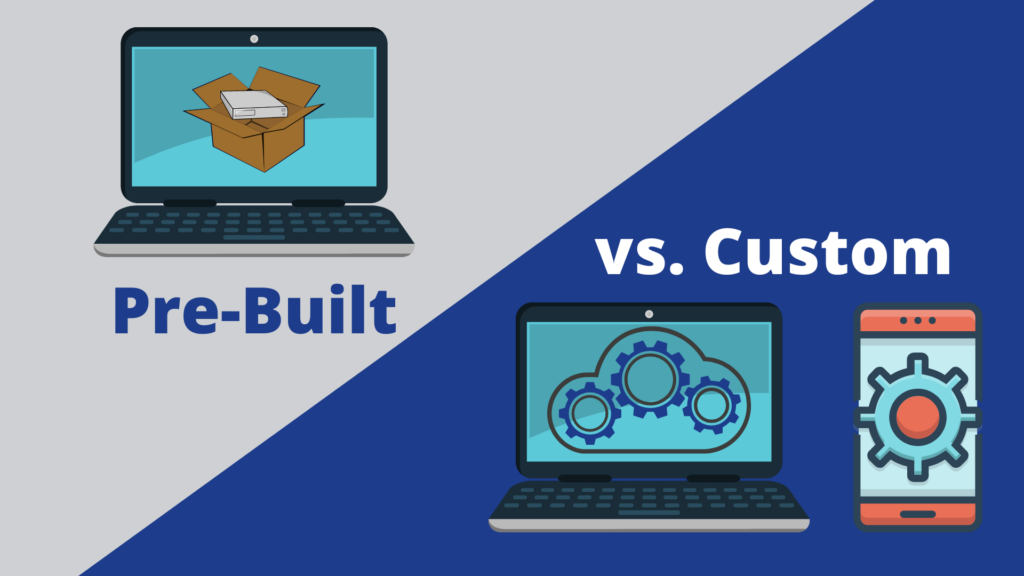Everything you need to know about choosing the right construction ERP tool for tracking materials, managing projects, and streamlining operations
The construction industry’s digital transformation has made Enterprise Resource Planning (ERP) systems essential for managing complex projects, tracking materials, and maintaining financial control. With numerous construction ERP solutions available, choosing the right system can make the difference between project success and costly delays.
This guide examines the leading construction ERP systems, comparing features and ideal use cases to help you make an informed decision for your construction business.
Understanding Construction ERP Systems
Construction ERP systems integrate all aspects of your business operations into a single platform, from project management and material tracking to financial accounting and human resources. Unlike generic business software, construction ERPs are specifically designed to handle unique industry challenges, including job costing, project-based accounting, and complex material management.
These systems serve as the central hub for all project information, enabling real-time visibility into project progress, material inventory, labor costs, and financial performance. The best construction ERP solutions provide seamless integration between field operations and back-office functions.
Top Construction ERP Systems Compared
Viewpoint Vista: The Industry Standard
Viewpoint Vista is a complete ERP solution designed to manage construction operations from start to finish. As part of the Trimble ecosystem, Vista offers deep integration with other construction technologies and has established itself as a preferred solution for mid-to-large construction companies.
Vista’s strengths include comprehensive job costing capabilities that provide detailed tracking of labor, materials, and equipment costs across multiple projects. The system excels at managing complex project hierarchies and offers robust reporting features. Its material management module provides real-time inventory tracking, automated purchase order generation, and seamless integration with third-party barcode scanning solutions and supplier catalogs. The platform’s open architecture and extensive API capabilities make it particularly strong for companies looking to integrate specialized inventory management and tool tracking solutions.
Sage Intacct Construction: Cloud-Based Financial Excellence
Sage Intacct is a modern, cloud-based accounting and financial management platform tailored for construction. The system offers sophisticated financial management capabilities, making it ideal for construction companies that prioritize accurate financial reporting and cash flow management.
Sage Intacct Construction provides project accounting, job costing, and revenue recognition that complies with construction industry standards. Its robust integration capabilities allow seamless connection with popular construction management tools and specialized inventory management systems, creating a unified workflow between financial management and project execution. The platform’s API-first architecture makes it particularly well-suited for companies that want to enhance their material tracking and tool management capabilities through third-party integrations.
Acumatica Construction: Flexible and Scalable
Acumatica excels in multi-branch operations and is favored by companies in the $10-100 million revenue range. The platform’s unique customer-centric licensing model and flexible architecture make it attractive for growing construction companies.
Acumatica’s construction module provides comprehensive project management capabilities, including change order management, project billing, and cost tracking. The system handles complex multi-location operations while maintaining centralized control over finances and operations.
NetSuite for Construction: Enterprise-Grade Scalability
NetSuite offers a comprehensive cloud-based ERP solution that serves construction companies of all sizes. The platform’s strength lies in its scalability and ability to handle complex business processes across multiple locations and subsidiaries.
NetSuite’s construction features include project accounting, job costing, and resource planning tools. The system’s financial management capabilities provide real-time visibility into project profitability and cash flow, while its material management module offers advanced inventory tracking and automated procurement processes.
Foundation Software: Purpose-Built for Construction
Foundation Software is specifically designed for the construction industry, offering deep functionality for project management, accounting, and material tracking. The system’s strength lies in its industry-specific features and understanding of construction workflows.
Foundation provides detailed job costing, scheduling, and resource allocation tools. Its material management features include inventory tracking, purchase order management, and integration with supplier catalogs, all accessible through mobile capabilities for real-time field updates.
Procore: Project-Centric Construction Management
While primarily known as a construction project management platform, Procore has evolved to include ERP-like functionality through its extensive integration ecosystem. In 2021, Procore partnered with Sage to launch the Sage Intacct Construction and Procore Connector.
Procore’s strength lies in its project-centric approach, providing tools for document management, field productivity, and project communication. The platform’s integration capabilities allow it to connect with various ERP systems, creating unified workflows.
Key Features to Consider in Construction ERP Systems
Material Tracking and Inventory Management
Effective material tracking is crucial for construction project success. The best construction ERP systems provide real-time visibility into material inventory, automated reorder points, and integration with supplier systems. Look for features like barcode scanning capabilities, mobile inventory management, and automated purchase order generation. Systems with strong integration capabilities can connect with specialized barcode scanning and tool tracking solutions to enhance these core features.
Advanced capabilities include lot tracking, serial number management, and integration with material delivery systems to ensure proper project allocation and accurate inventory levels across multiple locations.
Project Management and Job Costing
Construction projects require detailed cost tracking and project management capabilities. Your ERP system should provide comprehensive job costing features that track labor, materials, and equipment costs across multiple cost codes and project phases.
Essential project management features include scheduling tools, resource allocation, and progress tracking capabilities with real-time integration to field management systems.
Financial Management and Integration
Construction companies need sophisticated financial management for project-based accounting, progress billing, and cash flow management. Look for systems that provide construction-specific accounting features like percentage-of-completion accounting and retention management.
Modern construction companies use multiple software systems, making integration capabilities essential. Your ERP system should integrate seamlessly with project management tools, estimating software, and field productivity applications through APIs and pre-built integrations. The most successful implementations often involve ERP systems that can connect with specialized solutions for inventory management, barcode scanning, and tool tracking to create a comprehensive operational ecosystem.
Choosing the Right Construction ERP for Your Business
Assessing Your Company Size and Complexity
Small construction companies may benefit from simpler systems focusing on core accounting and project management features. Mid-size companies typically need more comprehensive solutions handling multiple projects, locations, and complex reporting requirements.
Large construction companies require enterprise-grade solutions managing complex organizational structures, multiple subsidiaries, and sophisticated financial reporting with advanced features like multi-currency support and complex approval workflows.
Implementation and Support Considerations
ERP implementation can be complex and time-consuming. Look for vendors that provide comprehensive implementation support, training programs, and ongoing technical support. Consider the vendor’s experience with construction companies and their understanding of industry-specific requirements.
Change management is crucial for successful ERP implementation. Choose vendors that provide training resources, documentation, and support for helping your team adapt to new processes and workflows.
Future Trends in Construction ERP
Artificial Intelligence and Mobile Integration
AI and machine learning are beginning to impact construction ERP systems, providing predictive analytics for project scheduling, cost estimation, and risk management. These technologies help construction companies identify potential issues before they become problems.
Mobile technology continues to evolve, providing field teams with better access to ERP information and real-time project data updates. Integration with IoT devices and sensors provides real-time data on equipment usage, material consumption, and project progress.
Cloud-Based Solutions
Cloud-based ERP solutions are becoming the standard for construction companies, providing scalability, security, and accessibility advantages. Cloud systems eliminate the need for on-premise infrastructure and provide automatic updates and maintenance while allowing companies to scale as their business grows.
Making Your Decision: Construction ERP Selection Framework
Define Your Requirements
Start by clearly defining your business requirements, including the number of users, project complexity, integration needs, and budget constraints. Consider your company’s growth plans and ensure that your chosen ERP system can scale with your business.
Vendor Evaluation Process
Create a structured vendor evaluation process that includes demonstrations, reference checks, and proof-of-concept testing. Evaluate vendors based on their construction industry experience, implementation methodology, and ongoing support capabilities.
Consider starting with a pilot implementation to test the system with a small group of users before rolling out to the entire organization. This approach helps identify and resolve issues before full deployment.
Conclusion: Choosing the Right Construction ERP Tool for Success
The construction industry’s digital transformation has made ERP systems essential tools for managing complex projects, tracking materials, and maintaining financial control. Whether you choose Viewpoint Vista’s comprehensive capabilities, Sage Intacct’s financial excellence, or another solution, the key is selecting a system that aligns with your specific business needs.
Success with construction ERP depends on careful planning, proper implementation, and ongoing commitment to utilizing the system’s capabilities. By choosing the right ERP solution and implementing it effectively, construction companies can achieve improved project visibility, better cost control, and enhanced operational efficiency.
The investment in a quality construction ERP system pays dividends through improved project profitability, reduced administrative overhead, and better decision-making capabilities. As the construction industry continues to evolve, having the right ERP foundation will position your company for continued success and growth.



